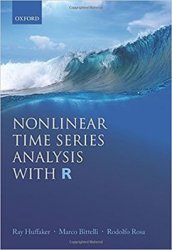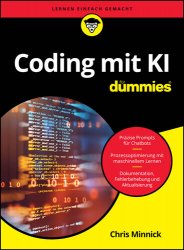 Название: Nonlinear Time Series Analysis with R
Название: Nonlinear Time Series Analysis with R Автор: Ray Huffaker, Marco Bittelli, Rodolfo Rosa
Издательство: Oxford University Press
ISBN: 0198782934
Год: 2017
Страниц: 384
Язык: английский
Формат: pdf
Размер: 29.6 MB
Nonlinear Time Series Analysis with R provides a practical guide to emerging empirical techniques allowing practitioners to diagnose whether highly fluctuating and random appearing data are most likely driven by random or deterministic dynamic forces. It joins the chorus of voices recommending 'getting to know your data' as an essential preliminary evidentiary step in modelling. Time series are often highly fluctuating with a random appearance. Observed volatility is commonly attributed to exogenous random shocks to stable real-world systems. However, breakthroughs in nonlinear dynamics raise another possibility: highly complex dynamics can emerge endogenously from astoundingly parsimonious deterministic nonlinear models. Nonlinear Time Series Analysis (NLTS) is a collection of empirical tools designed to aid practitioners detect whether stochastic or deterministic dynamics most likely drive observed complexity. Practitioners become 'data detectives' accumulating hard empirical evidence supporting their modelling approach.
This book is targeted to professionals and graduate students in engineering and the biophysical and social sciences. Its major objectives are to help non-mathematicians–with limited knowledge of nonlinear dynamics–to become operational in NLTS; and in this way to pave the way for NLTS to be adopted in the conventional empirical toolbox and core coursework of the targeted disciplines. Consistent with modern trends in university instruction, the book makes readers active learners with hands-on computer experiments in R code directing them through NLTS methods and helping them understand the underlying logic. The computer code is explained in detail so that readers can adjust it for use in their own work. The book also provides readers with an explicit framework–condensed from sound empirical practices recommended in the literature–that details a step-by-step procedure for applying NLTS in real-world data diagnostics.
Скачать Nonlinear Time Series Analysis with R
[related-news] [/related-news]
Комментарии 0
Комментариев пока нет. Стань первым!















